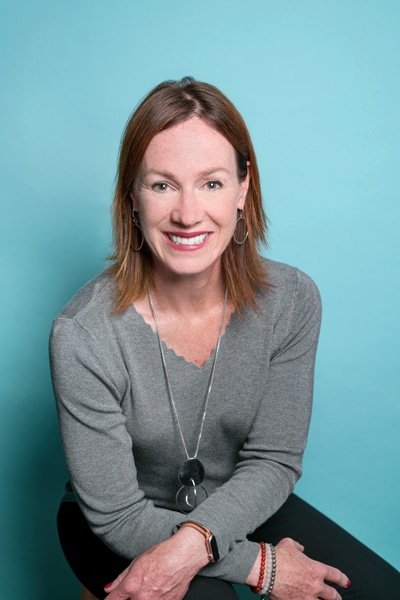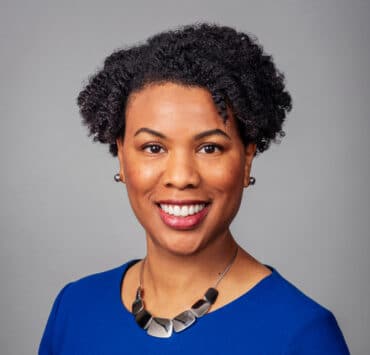|
Getting your Trinity Audio player ready...
|
Regardless of what type of company they work for, most in-house employment counsel have had to navigate a slew of new and unique legal considerations during the COVID-19 pandemic. Whether keeping track of ever-evolving health regulations or negotiating an executive hire or termination over Zoom, employment lawyers everywhere have been tasked with finding fresh ways of putting their legal expertise to work.
Kelly Mandish, director for global employment law at Netflix, is no different. One of her latest projects for the streaming giant involves monitoring the accessibility of vaccinations to employees and cast/crew and the de-escalation of safety protocols in more than twenty-five countries around the world. But perhaps her most important workplace skill to emerge during the pandemic came from a place that had little to do with law—at least on the surface.
“This time has been challenging for us all professionally and personally,” Mandish says. “As a mom, I recognize the day-to-day personal struggles that we’re dealing with because I’ve had to manage these struggles in my own family. I’m always asking my team members, ‘How are you doing?’ And when I ask that, I really mean it. They know I mean it because I also tell them how I’m doing. Just like everyone else, I have some days where I’m not doing as well.”

As she explains, the big-picture approach to any legal matter on her team at Netflix is twofold: first, to pinpoint the problem the team is trying to solve, and second, to determine what solution is going to be best for the company. When her team has clarity on what’s going on in their own lives—as well as a space where they support each other and can safely share their individual experiences—it becomes that much easier to creatively solve whatever issues need solving on the legal end.
“Once we get everything out there, it’s easier to focus on the issue at hand and not get distracted by whatever’s pulling at our mind or our heart,” Mandish says.
Another priority for Mandish over the past year didn’t stem directly from the pandemic itself but the increased awareness around racial inequity and violence.
“This past year my eyes have really been opened to what Black, Indigenous, and people of color have been experiencing for generations,” she says. “This has caused me to self-reflect on my own journey as a woman with privilege and think about my role in all this. What can I do to be an ally to my Black, Indigenous, and POC friends, colleagues, and loved ones?”
As Mandish began examining her own allyship, she reached out to Netflix’s pro bono committee in LA for the first time since she was hired nearly seven years ago. She ended up joining the working group that developed a partnership between Netflix and the legal and civics education program Street Law. This resulted in sixty-five volunteers from Netflix embarking on a three-week virtual program teaching legal life skills to more than seventy-five students from two high schools in local communities of color in Oakland and LA. The experience has given Mandish insight into the lives of students whose stories are much different from her own.
She’s also become heavily involved with Limitless Horizons Ixil (LHI), a nonprofit with the mission of educating and supporting young students, particularly girls, in a remote Indigenous community in Guatemala. A village that has been torn apart by genocide, Chajul has been in need of local leadership and organizational capacity to empower its people, which is where LHI comes in. Since its founding in 2004, the organization has made significant progress in broadening access to education for hundreds of students, primarily Chajul’s girls. Mandish sits on the board of directors, lending her passion and legal expertise to the development of a brand-new school catering to girls and young women in the community. Construction broke ground in February 2021, and Mandish reports that they hope to have the school opened in January 2022.
Mandish hopes to visit Chajul with her own daughter, but she points out that while the COVID-19 pandemic seems to be under control in the United States, that isn’t the case everywhere. At the time of publication, new cases remained high in Guatemala; the country’s vaccination rate is one of the slowest in Central America. Not everyone’s experience matches our own, Mandish points out.
It’s an outlook that she wants to make sure she carries into the future as Netflix’s work environment returns to normalcy in the US, especially considering that Mandish’s eight-person legal team is based all around the world. She also aims to continue to foster a high level of emotional transparency for her team.
“Before COVID, I used to travel quarterly to visit my team members, who I now haven’t seen in eighteen months,” Mandish says. “I miss that, but I also feel like we’ve now seen sides of each other we may never have seen outside of the pandemic. We’ve seen the insides of our homes. We’ve seen our kids, spouses, and pets. I do think that’s a silver lining. We’re closer than ever because we’ve been more vulnerable with each other and really trusted each other with who we are.”

